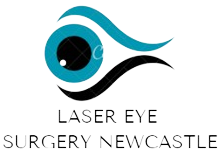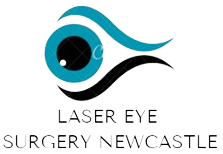Are you contemplating laser eye surgery and wondering about age criteria? This detailed overview addresses all aspects, from age limits to eligibility for the procedure.
We’ll examine essential requirements and various surgical options such as LASIK, PRK, and SMILE and discuss health prerequisites and vision stability needs.
Learn about the risks of these surgeries, how to prepare, and what the recovery entails.
We’ll help you understand whether you’re a candidate for laser eye surgery and detail the steps towards achieving clearer vision. Discover how our expertise in Laser Eye Surgery in Newcastle can assist you in making an informed decision and planning your procedure effectively.
How Old Do You Have to Be to Get Laser Eye Surgery?
Assessing the right age for laser eye surgery, such as LASIK, entails analysing key factors, including eye health, age suitability, and candidate qualifications. These characteristics determine when someone might benefit most from this vision correction method.
Evaluating whether your vision has stabilised is essential for this procedure, as eyesight fluctuations can impact the surgery’s effectiveness. Reflecting on these prerequisites naturally leads us to question our suitability for such a transformative step in eye care.
Am I a Good Candidate for Laser Eye Surgery?
Candidates must first pass a detailed eye examination to qualify for laser eye surgery like LASIK. Strong eye health is essential to this eligibility, specifically the absence of eye conditions such as cataracts or glaucoma that could negatively affect the surgery’s results. Also, having a stable prescription for at least a year before surgery is vital to ensure the procedure’s precision.
Another key factor is the presence of refractive errors—conditions like nearsightedness, farsightedness, and astigmatism are generally treatable with LASIK. Understanding these eligibility criteria is the first step towards a clearer vision for those considering this surgery.
As we discuss the journey towards achieving optimal vision correction, it’s also important to evaluate how factors like age influence the timing and appropriateness of such procedures.
What is the Minimum Age for Laser Eye Surgery?
The typical starting age for LASIK eye surgery is 18, marking when a person’s vision generally stabilises. This stability is key for LASIK, which precisely corrects vision based on a stable prescription.
During the teenage years, fluctuating vision can make earlier surgery risky due to the potential need for further adjustments as the eyes change. Setting the minimum age at 18 increases the likelihood of achieving a successful, lasting correction while reducing the chances of needing subsequent treatments.
Age is just one of several criteria, so it’s important to analyse what other factors contribute to determining a candidate’s suitability for LASIK surgery.
What are the Requirements for Laser Eye Surgery?
Meeting the requirements for laser eye surgery, such as LASIK, involves ensuring prescription stability, good overall health, and the absence of contraindications that could affect surgery outcomes.
Stable Vision
Stable vision is not just a requirement but a cornerstone of successful LASIK eye surgery. Any fluctuations in your prescription can greatly impact the procedure’s outcome, underscoring the importance of regular vision check-ups.
Prescription stability is typically measured by assessing a patient’s refractive error’s consistency over time. This involves monitoring any changes in the prescription strength needed to correct vision and ensuring it remains relatively constant.
Patients play a vital role in ensuring their vision stability before LASIK. By closely working with their eye care provider and monitoring any changes in their prescription, they can empower themselves to achieve the best possible results post-surgery.
Good Overall Health
Good overall health is essential for eligibility for LASIK eye surgery, as certain systemic conditions can affect the surgery and the healing process.
Patients with diabetes need to carefully manage their blood sugar levels before surgery to minimise the risk of complications. Similarly, individuals with autoimmune diseases should work closely with their healthcare providers to ensure their conditions are under control before proceeding with LASIK.
Consulting with an eye surgeon and a medical practitioner is required to assess the patient’s overall health, discuss potential risks, and determine the best course of action for a successful surgery and recovery.
Certain Prescription
LASIK eye surgery specifically targets common refractive errors, adjusting prescriptions within the ranges of -11.00 to +5.00 dioptres for myopia, up to +5.00 dioptres for hyperopia, and up to 5.00 dioptres for astigmatism.
This procedure involves reshaping the cornea to correct these visual impairments. However, alternatives such as PRK (Photorefractive Keratectomy) or ICL (Implantable Collamer Lens) may be recommended for those with prescriptions outside these limits to ensure optimal vision correction. These varying procedures highlight the various methods available to address different visual needs.
What are the Types of Laser Eye Surgery?
Several types of laser eye surgery are available, including LASIK, PRK, and SMILE. Each uses advanced laser technology to correct vision by reshaping the cornea.
LASIK
LASIK, or Laser-Assisted In Situ Keratomileusis, is a popular laser surgery procedure that corrects vision by reshaping the cornea.
During a LASIK procedure, the eye surgeon creates a thin flap in the cornea, exposing the underlying tissue. This is typically done using a femtosecond laser, which ensures precise and accurate flap creation.
Once the flap is folded back, an excimer laser is used to reshape the cornea by removing microscopic amounts of tissue. This reshaping allows the cornea to better focus light onto the retina, correcting refractive errors such as shortsightedness, longsightedness, and astigmatism.
PRK
PRK, or Photorefractive Keratectomy, is a laser eye surgery procedure that corrects vision by reshaping the cornea’s surface.
Unlike LASIK, PRK involves removing the thin outer layer of the cornea, known as the epithelium, before reshaping the cornea’s surface. PRK is better for individuals with thin or irregular corneas, as it preserves more corneal tissue. The procedure typically takes around 15 minutes per eye, during which the patient is given numbing eye drops to ensure comfort.
One of the key benefits of PRK is its suitability for those with certain corneal issues or professions that pose a risk of eye trauma—such as athletes or military personnel. The recovery time for PRK is slightly longer than LASIK, with vision improvement taking a few days to weeks. Once fully recovered, patients often experience excellent visual outcomes and reduced dependency on glasses or contacts.
SMILE
SMILE, short for Small Incision Lenticule Extraction, represents a breakthrough in minimally invasive vision correction, employing a femtosecond laser to remove a precisely shaped corneal lenticule through a small cut.
Unlike LASIK, which involves cutting a flap in the cornea, SMILE reduces potential flap-related issues, thus enhancing safety and speeding up the healing process.
Its quick recovery period makes SMILE especially appealing for those eager to resume their active lifestyles promptly after surgery. While the advantages are significant, it’s equally important to regard any potential challenges and side effects accompanying such advanced procedures.
What are the Risks and Complications of Laser Eye Surgery?
Laser eye surgery, such as LASIK, presents certain risks that patients must weigh before proceeding. Dry eyes, a common postoperative issue, occur when tear production fails to adequately moisten the eye surface, causing discomfort and potential vision problems.
Though infrequent, infections pose another risk if hygiene practices are neglected. Additionally, some individuals might notice visual disturbances, including halos or glare, particularly in low-light conditions. These effects generally diminish as the healing process progresses. Preparing for the procedure can help manage expectations and improve the experience.
How Do I Prepare for Laser Eye Surgery?
To prepare for LASIK eye surgery, you must schedule a consultation to assess your suitability and receive pre-operative instructions. It’s essential to stop wearing contact lenses well ahead of the procedure, as they can reshape your cornea; instead, switch to glasses to maintain corneal integrity.
A thorough eye examination is also important to your preparation, as it verifies eye health and determines the exact prescription required. Moreover, arranging transportation is key since you’ll be unable to drive post-surgery.
Understanding these steps primes you for a smooth transition into the surgery day, naturally leading to what unfolds during the operation and how you’ll manage recovery.
What Can I Expect During and After the Procedure?
Patients typically experience a swift, minimally discomforting process during the LASIK procedure. Immediately following surgery, most report a noticeable enhancement in vision—often within just a few hours. The journey to full visual recovery usually spans only a few days.
To support healing, patients must rest their eyes, particularly in the first 24 hours, and refrain from vigorous activities. Applying prescribed eye drops helps prevent infection and facilitate healing.
Regular follow-up visits play a critical role in monitoring the eyes’ recovery and ensuring any adjustments to treatment are made promptly. Exploring these initial measures naturally leads us to consider the broader scope of post-surgical care and the expectations for a smooth recovery.
What is the Recovery Process Like?
After undergoing LASIK eye surgery, patients typically begin their recovery with a brief rest period, facilitating swift vision improvement as their eyes heal.
Surgeons advise patients to minimise activity immediately post-surgery to support proper healing. Following the surgeon’s detailed care instructions, including using prescribed eye drops and wearing protective eyewear, is essential for a smooth recovery.
Most individuals notice enhanced vision within 24 to 48 hours post-surgery, with ongoing improvements over subsequent weeks. Surgeons schedule follow-up appointments during the first few days, weeks, and months to assess progress and resolve issues.
Throughout recovery, avoiding activities that could strain the eyes is important, such as swimming, contact sports, or rubbing the eyes. Strict adherence to the surgeon’s guidance on rest and activity restrictions is vital for successful recovery.
As patients navigate the recovery timeline and adhere to these precautions, considerations such as the patient’s age can also influence the surgical approach and outcomes. This naturally brings up various inquiries regarding age-related eligibility for the procedure.
Can I Get Laser Eye Surgery at Any Age?
LASIK eye surgery, typically recommended for adults with stable vision, may not be ideal as age brings changes like presbyopia and cataracts that can affect the timing and suitability of this procedure.
Presbyopia—a condition impairs near vision—often requires modifications to the standard LASIK approach to achieve optimal results. Also, for those developing cataracts, it’s usually more beneficial to address these before undergoing LASIK, as cataract surgery not only enhances vision but also often decreases dependence on glasses.
In cases where age-related vision changes are significant, procedures like PRK or lens replacement might offer a better solution for those not ideally suited for LASIK. These reflections highlight the importance of selecting a provider who understands and addresses the unique aspects of each patient’s vision health.
Why Choose Us for Your Laser Eye Surgery?
Choosing us for your Laser Eye Surgery means entrusting your vision to a team of experienced eye surgeons with a proven track record and extensive peer-reviewed publications.
Book Your Reservation Now
Booking your reservation for a LASIK consultation with our expert eye surgeons is the first step towards achieving a clearer vision.
By scheduling a consultation, you open the doors to a world of possibilities.
LASIK consultations are designed to assess your eyes’ health and determine your best treatment plan. This proactive step can help address any eye issues early on, preventing them from worsening. Our knowledgeable professionals will create a personalised treatment plan customised to your unique needs, ensuring optimal outcomes.
Don’t delay – book your LASIK consultation today and embark on a journey to improved vision!
Your Journey Toward Clearer Vision: Next Steps After Considering Laser Eye Surgery
After considering LASIK eye surgery, the next steps involve scheduling a consultation, undergoing a thorough eye exam, and discussing the best vision correction options with your eye surgeon.
During the consultation, your eye surgeon will evaluate your eligibility for LASIK, considering factors like your eye health and overall medical history. To ensure the best possible outcome, it’s essential to be honest and open about any existing eye conditions, medications, or previous surgeries.
Following the eye exam, your surgeon will explain the LASIK procedure in detail, including the potential risks, benefits, and expected outcomes. This is an important time to ask questions or address concerns about the surgery.
Once you are fully informed and ready to proceed, your surgeon will schedule a convenient date for your LASIK surgery.
Remember, the decision to undergo LASIK should be based on a well-informed choice, and your surgeon will be there to guide and support you every step of the way towards achieving a clearer vision.






